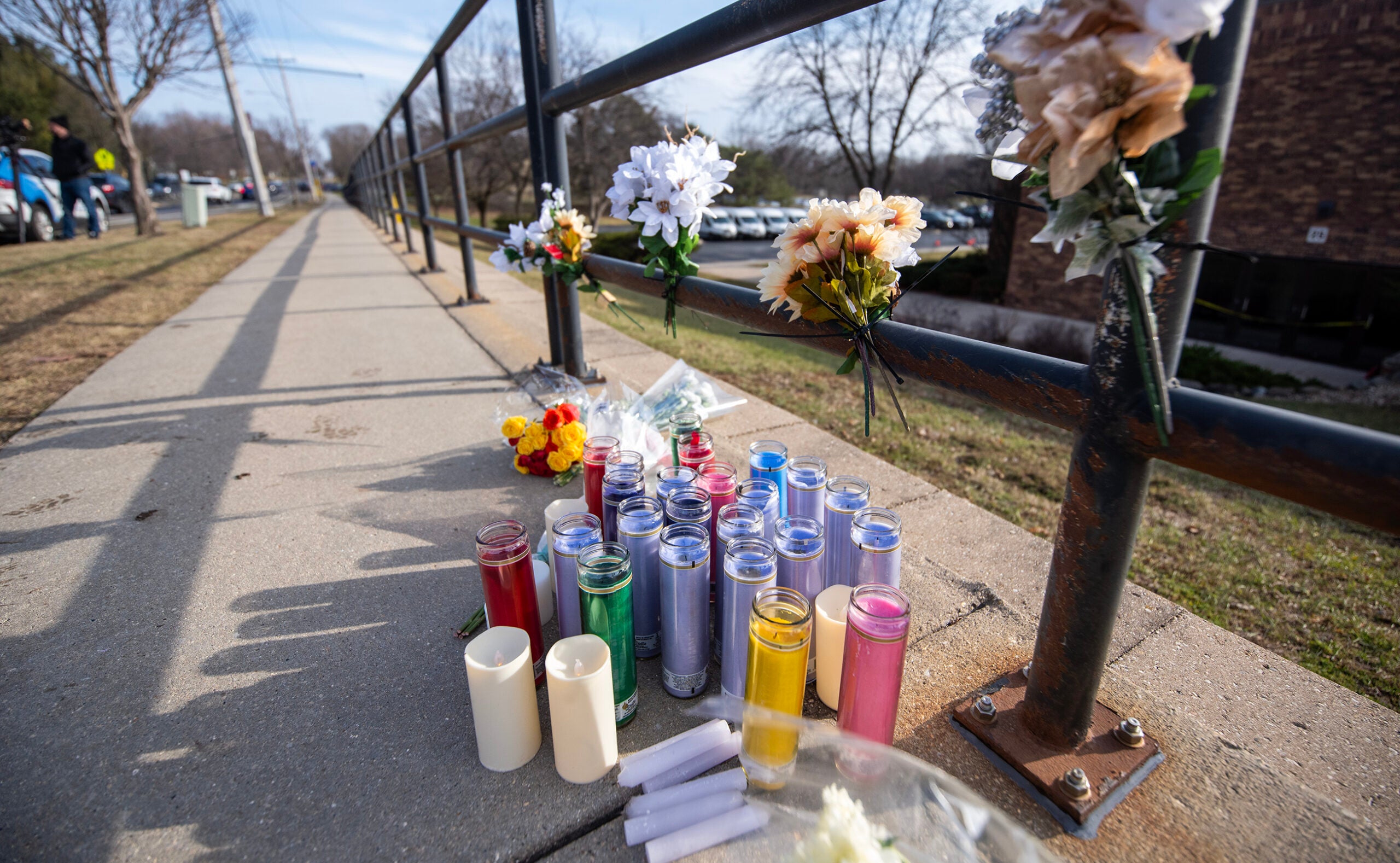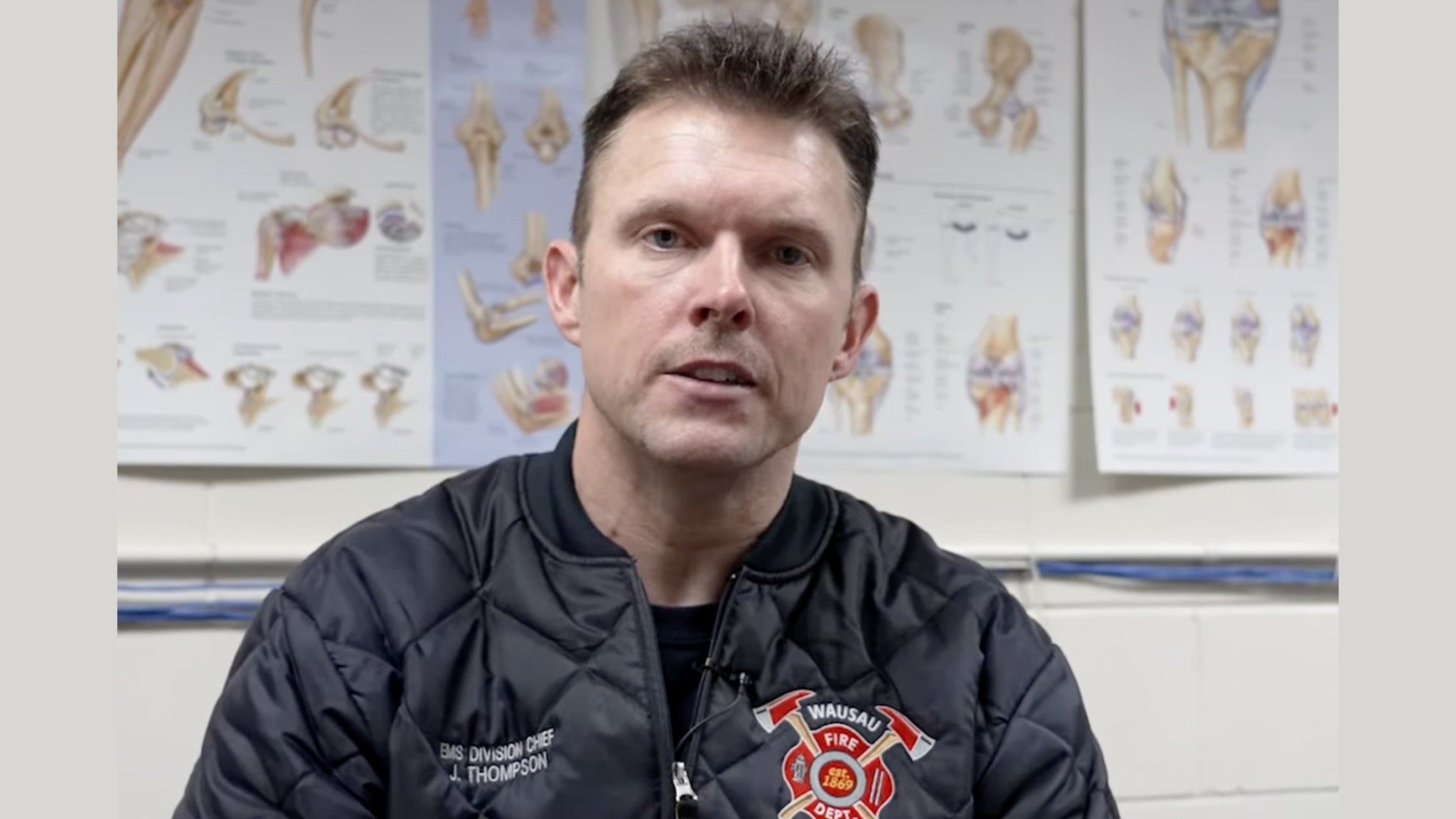More police departments in Wisconsin are adding social workers or civilian positions that will respond to crisis calls with officers at a time when law enforcement has faced increased scrutiny over its use of force when responding to mental health calls across the country.
Police departments in Superior, Janesville and Eau Claire are among those who are hiring or already working with mental health professionals to better connect those in crisis to resources.
Superior Police Chief Nick Alexander said he’s been seeking a position for several years in response to a growing number of mental health-related calls, which have accounted for roughly 350 to 400 calls in the last two years. Since the city approved funding last fall, the department is now hiring a full-time community outreach specialist that will be paired with an officer to respond to calls.
News with a little more humanity
WPR’s “Wisconsin Today” newsletter keeps you connected to the state you love without feeling overwhelmed. No paywall. No agenda. No corporate filter.
Alexander said officers often must decide whether to arrest someone, encourage that person to seek care if they’re in crisis or take the individual to a hospital against their will if they’re a danger to themselves or others.
“The ultimate goal is to bridge that gap and provide services to community members who need it — resources that are available locally — much faster and quicker to people,” said Alexander.
He said the goal is to help people live a happy and healthy life while reducing calls for service, noting officers don’t want to criminalize homelessness or mental health issues. Yet, nearly 2 in 5 people who are incarcerated have a history of mental illness, according the National Alliance on Mental Illness.
The position in Superior wouldn’t be limited to only social workers in an attempt to draw a wider pool of applicants. The city’s police chief hopes to have someone on board by mid-July.
The response of law enforcement agencies to calls involving mental health, substance abuse and homelessness has prompted criticism in recent years, culminating in worldwide protests last year following the murder of George Floyd by police. Former President Donald Trump issued an executive order last summer designed to encourage departments to adopt police reforms and work with mental health professionals to respond with officers on calls related to issues such as drug addiction and mental illness.
The Eau Claire Police Department recently hired a social worker who will be embedded with officers as a co-response coordinator beginning in mid-July. That person will respond with officers and follow up with individuals in crisis to connect them with resources.
Chief Matt Rokus said officers have responded to more than 5,000 calls of people experiencing mental health issues or crisis in the last four years, and that figure has been steadily rising over time.
“We need to develop better approaches to these issues that are preventive in nature — number one — to improve lives, but also to create some efficiencies in where officers’ time is spent,” Rokus said.
Rokus said the hiring builds on the department’s crisis intervention training in addition to implementing the Integrating Communications, Assessment, and Tactics, or ICAT, model for deescalating situations involving weapons. The model seeks to give officers skills to slow down crisis situations and help police resolve them safely.
Others, like Sgt. Dean Sukus with the Janesville Police Department, say the national conversation surrounding policing and use of force has elevated awareness and support for co-response initiatives.
Wisteria Gunnink, a social worker with Rock County, has been embedded full-time with the Police Department since last May with the help of grant funding. Since then, Sukus said they’ve been able to connect people with resources more quickly and free up officers on mental health-related calls.
“When police officers have calls holding on the street, and they have to spend hours upon hours at the hospital, if she can be there and free up that police officer, it just gives the public the opportunity to have those officers back out on the street,” Sukus said.
While officers receive deescalation training, Sukus emphasized they’re not trained mental health professionals. That’s where Gunnink has been able to bridge the gap and provide support to those struggling in the community. A social worker for 14 years, she responds to crisis calls and assists officers and community members who need help.
“I am able to divert from hospitalization a lot of times (by) being able to go out and meet with individuals to see if we can connect them to resources versus having officers try to make that decision,” Gunnink said.
She said half of her job is following up with individuals she encounters and connecting them to support services or working with families to create plans for officers that may be regularly called to respond. One family with a child with autism who was having more outbursts developed a plan with Gunnink for law enforcement response.
“That plan I helped them create so that officers knew what to say when they did arrive,” said Gunnink. “And, that helped alleviate the family’s concern in calling police, that the police officers who were coming would know how to help their child.”
Last year, she had 296 contacts with individuals on crisis calls since May, when she started. Gunnink said she’s had 225 contacts in the first half of this year. She attributes many of the calls to follow-ups with individuals who need services while others are due in part to stress, personal problems or national events.
Social workers hope the co-response model in law enforcement is one that will grow in use among agencies nationwide, including Marc Herstand, executive director for the Wisconsin Chapter of the National Association of Social Workers.
“It would be great if every police department, and even sheriff’s department, had access to mental health professionals that could at least go out with them on a situation where there’s a mental health crisis,” said Herstand.
Herstand highlighted it’s not the only model agencies can employ to respond to mental health calls.
A federal report surveying community support models last year identified mobile crisis teams and call centers, peer support services, and mental health or behavioral health services among options being used to reduce police involvement to such calls.
Legislation was recently re-introduced in Congress to create a community-based grant program to incentivize local governments to create programs that explore alternatives to a law enforcement response.
Some officers fear potential safety risks with individuals responding to crisis calls until the details of an incident are known. Gunnink said she’s responded to calls alone as long as 911 dispatch knows her location and the person is considered low risk or likely to have an adverse reaction to law enforcement.
“Safety is always a priority,” she said.
She hopes more departments in Rock County will explore the use of such models, giving people more hope and resources to improve their state of mind.
Wisconsin Public Radio, © Copyright 2025, Board of Regents of the University of Wisconsin System and Wisconsin Educational Communications Board.







